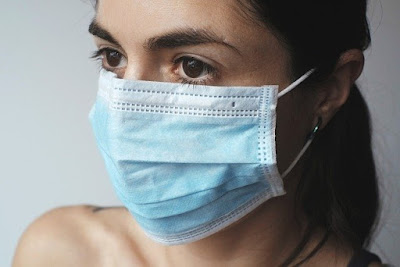How much do masks help against COVID-19?
New evidence suggests the novel corona virus might be able to spread through the air. It also seems to be contagious even though people don’t have symptoms to show they are infected. Those two worrisome findings led to believe that everyone wear masks over their noses and mouths in public.
With medical-grade masks in short supply, various Government has recommended that these be reserved for health care workers. The public was advised to look for cloth masks they could buy or make at home.
The best guard against airborne viruses are known as N95 masks. These are what hospital workers sometimes use around people who may be sick. They are different from the masks that doctors and nurses wear in surgery. With N95 masks in short supply, the medical community has been asking the public to reserve their use for hospital teams and first responders.
With medical-grade masks in short supply, various Government has recommended that these be reserved for health care workers. The public was advised to look for cloth masks they could buy or make at home.
The best guard against airborne viruses are known as N95 masks. These are what hospital workers sometimes use around people who may be sick. They are different from the masks that doctors and nurses wear in surgery. With N95 masks in short supply, the medical community has been asking the public to reserve their use for hospital teams and first responders.
But people can buy or make fabric masks. If a sick person wears one of these, the mask may catch most of their germy droplets of spit or nasal mucus. That could limit the virus from getting onto surfaces that others might touch. But these masks are designed to protect people from the mask-wearer, not the other way around.
And no mask is a replacement for hand washing and social distancing.
And no mask is a replacement for hand washing and social distancing.
How well do cloth/Surgical masks work?
Without masks, people sick with the new corona virus can likely spread the germs even without coughing or sneezing. Just breathing can send some viruses into the air. But fabric masks might capture some of that.
An international research group led by a team at the University of Hong Kong studied 246 people sick with viral infections. Some had corona viruses (which cause the common cold). Others had rhinoviruses (which also cause the common cold) or influenza viruses. A few were infected by at least two different types of viruses.
The researchers randomly assigned half of the people to wear surgical masks. Then the team measured viruses present in each person’s exhaled breaths. Between 30 and 40 percent of the people with corona virus infections exhaled viruses if they wore no mask. But no virus was detected in breaths exhaled through a surgical mask. Those masks appeared just a bit less protective for people with the flu. And the masks made no difference in how much virus was exhaled by people with rhinovirus infections.
A cloth mask must filter out small particles but still be easy to breathe through. Some materials, such as vacuum-cleaner bags, filter well, but make breathing difficult. Cotton T-shirts are a far more breathable fabric. And in this study, they filtered microbes roughly half as well as surgical masks. Another advantage of wearing such masks: They reminded wearers that they should not be touching their nose or mouth (which were now covered). For people interested in sewing their own masks, Johns Hopkins University has online directions.
Cloth masks don’t fit perfectly around the face. There will be gaps on the sides. Many people also don’t wear them properly (such as leaving their noses exposed while covering their mouth). That’s why JAMA Network published a whole webpage for the public on March 4 showing how masks should be worn during an epidemic such as COVID-19.
Studies of surgical masks have demonstrated that they can block the large particles that fly straight out in front of the mouth. But small virus-laced droplets and other airborne particles can still shoot out of the sides and top of surgical masks. With cloth masks, some viruses may shoot straight through as well as around the sides and top. Another limit of all mask studies: No one has shown how many corona virus particles are needed to start an infection.
A mask of any sort may help capture some virus-laden droplets before they can enter the air. They also will reduce the forward force of the exhaled cloud of droplets, diverting flow and cutting turbulence. That should limit how far the particles can travel. But remember..
“a mask does not replace social distancing”



Post A Comment:
0 comments so far,add yours
Please do not add any spam link in the comment box